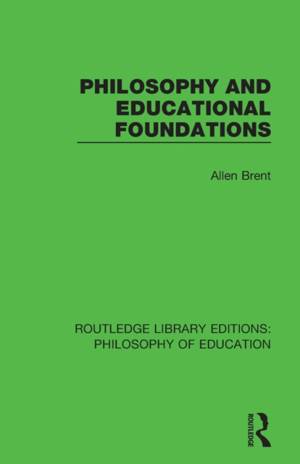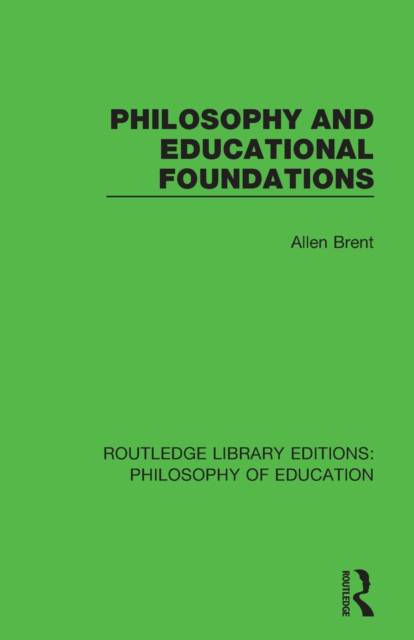
- Afhalen na 1 uur in een winkel met voorraad
- Gratis thuislevering in België vanaf € 30
- Ruim aanbod met 7 miljoen producten
- Afhalen na 1 uur in een winkel met voorraad
- Gratis thuislevering in België vanaf € 30
- Ruim aanbod met 7 miljoen producten
Omschrijving
What models in the social sciences underlie existing or proposed patterns of educational practice? What theories of knowledge inform such models and thus arguably sanction such practice? In this book, first published in 1983, the author seeks some tentative answers.
Wittgenstein's understanding of 'family resemblance' and Chomsky's 'linguistic universals' are interpreted, contrary to Hamlyn, as reconcilable notions that can both illuminate and refine Hirst's understanding of 'categorical concepts'. In the light of such a reformulated theory, Brent suggest ways in which a unified model of the social sciences could yield a unified curriculum theory. This title will be of interest to students of the philosophy of education and curriculum studies.
Specificaties
Betrokkenen
- Auteur(s):
- Uitgeverij:
Inhoud
- Aantal bladzijden:
- 382
- Taal:
- Engels
- Reeks:
- Reeksnummer:
- nr. 4
Eigenschappen
- Productcode (EAN):
- 9781138692565
- Verschijningsdatum:
- 27/02/2018
- Uitvoering:
- Paperback
- Formaat:
- Trade paperback (VS)
- Afmetingen:
- 140 mm x 216 mm
- Gewicht:
- 439 g

Alleen bij Standaard Boekhandel
Beoordelingen
We publiceren alleen reviews die voldoen aan de voorwaarden voor reviews. Bekijk onze voorwaarden voor reviews.









